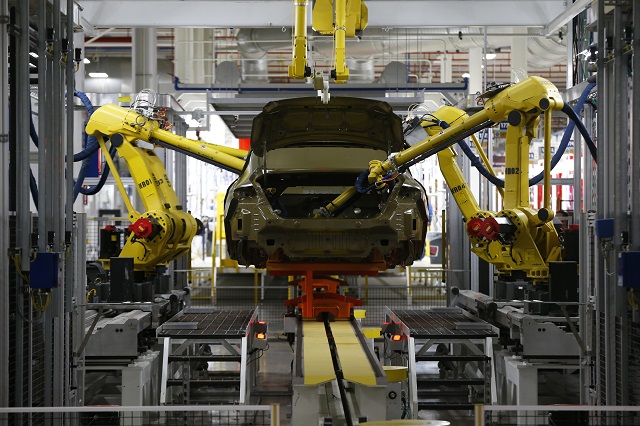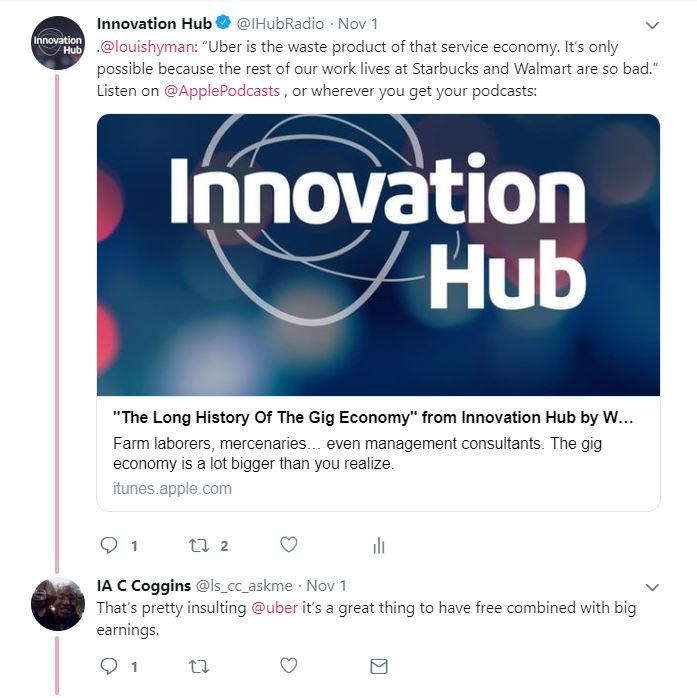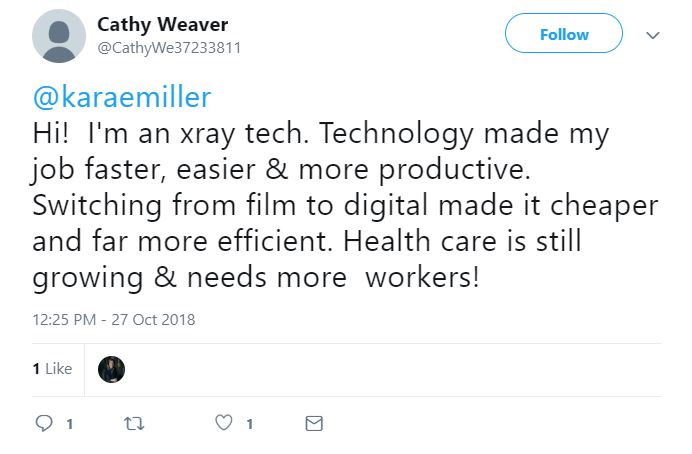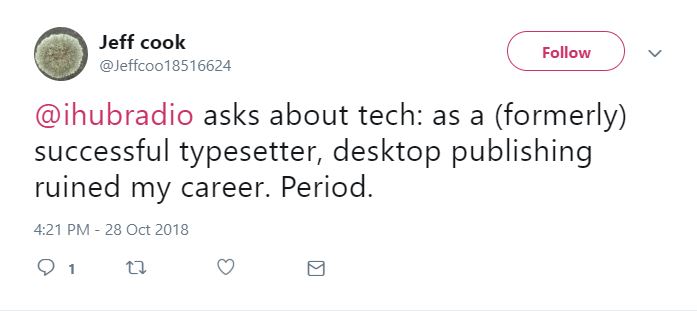
Credit: (AP Photo/Paul Sancya)
*This piece was originally published on October 26th, 2018
We constantly hear that technology is killing opportunities in the workplace. But reports by the World Economic Forum and Deloitte have shown that automation is creating — and will continue to create — millions of jobs in fields like sales, IT services, and big data. But to really know how tech is affecting our lives, experts like Daniel Theobald and Melissa Flagg say we need to focus less on the 30,000-foot view of the industry and more on what is going on at the ground level. We talk to Theobald, Vecna Robotics’ co-founder and Chief Innovation Officer as well as Flagg, the Northeast regional lead at the U.S. Army Research Laboratory, about how we should be taking a ground-up approach to America’s technological development.
Three Takeaways:
- So is technology really uprooting society? Yes and no. Flagg points to farmers in the Midwest who can still maintain their family businesses, thanks to technology like no-till farming and advanced tractors. But, of course, there are also people losing jobs. Flagg argues that both groups should help scientists and engineers shape future technologies.
- Part of accepting new technology is learning how to let go of old technology. Theobald points to telephone switchboard operators. Switchboard operators provided employment for decades, but the job started to become obsolete in the 1980s, at a time when tens of thousands of people were still employed as operators. And while the transition was difficult, Theobald points out that today’s communications technology would simply not be possible with manual switchboard operation.
- But Flagg and Theobald both agree that more attention needs to be paid to the people who have had their lives disrupted by tech. They say we need more education and retraining for people who might have lost their jobs, plus programs that teach workers how they can incorporate technologies into their current roles.
Listener Comments:
We wanted to hear from you, our listeners, about technology in the workplace. Does your job require a lot of it? And if it does, has it impacted you in a positive or a negative way?
Well, you reached out, and the results... were mixed. Some, like Clarence Coggins who’s a 54-year-old rideshare and taxi driver from Jersey City, NJ, says he loves how tech has improved his life.

Coggins has been working in his field for about a year-and-a-half, and says that platforms like Uber have given him a lucrative business that lets him choose his hours.
“It provides freedom to do what what I’d like to do, when I need to do it, and that’s really the biggest thing,” Coggins said during an interview with Innovation Hub. “You have to work, but I can set when I get to work. It can be late at night, I can work early in the morning. I’ve basically been free to work in a 24/7 parameter, whereas when you work a regular 9-to-5 type of job, you’re provided the times by your employer.”
Cathy Weaver, an X-ray technician, also reached out to us on Twitter. She, too, was a big fan of tech.

But as you can imagine, the responses weren’t all sunshine and roses. Some people were negatively affected by technology. Take Jeff Cook:

Pharmacist Lynn Weinstein wrote to us and said that not only is technology negatively influencing her health, but it’s also contributing to a sub-par product.
“I am a pharmacist and I am 5 feet tall. Automation has made many jobs almost inaccessible to me because it is too hard for me to spend 7 hours a day reaching far enough across the counter to get to the bins containing a patient's order that are sent to us on a conveyor belt. I am not the only one who ends up with a terrible backache and strained shoulders.”
She adds:
“I can't use a step stool because then if anyone has to move around, it is a tripping hazard. I also got a stress fracture on my foot from having the pressure of coming off the stool all day. Automated counters are a lifesaver, except they can't detect broken tablets, so we get complaints if those bottles go out to patients.”
We want to hear from you, whether it’s about a segment, a story idea, or anything else that might be on your mind.
Drop us a line at innovationhub@wgbh.org or get at us on Twitter: @IhubRadio. Or give us a call at 617-684-5839 - we might play your voice on the radio!
More Reading:
- Fewer human workers could spell fewer taxes. But what if we taxed robots? Alphr explains what that tax might look like.
- It’s becoming clear that the global automation race is really between two main players: the U.S. and China. And author Kai-Fu Lee says this duopoly will redefine the future of AI.
- Is it unethical for employees to automate their jobs without telling their employers? The Atlantic investigates.
We updated this post on Friday, Nov. 9 to reflect the comments we received about this segment.

